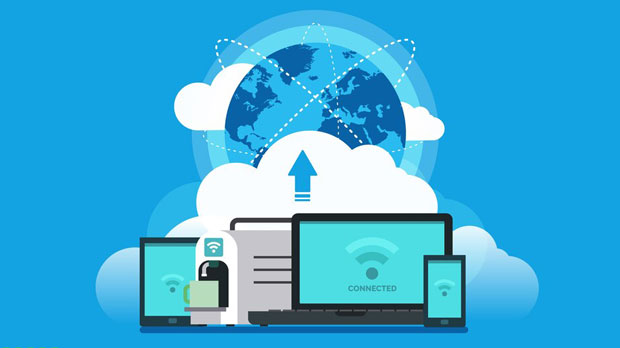In the field of cross-border e-commerce, data collection plays a pivotal role in helping businesses understand global markets, customer behaviors, and the competitive landscape. One tool that has gained significant attention in recent years is the "Buy Socks Proxy." A buy socks proxy is a type of proxy server used to mask or change a user's IP address while they browse e-commerce sites. This technique provides businesses with the ability to gather accurate, real-time data without being blocked or restricted by website security measures. In the context of cross-border e-commerce, this tool proves invaluable for competitive intelligence, market research, and pricing strategy analysis. The Significance of Data Collection in Cross-Border E-CommerceCross-border e-commerce has become a major driving force for global business expansion. It allows companies to access international markets, optimize product offerings, and maximize profits. However, with such opportunities comes the challenge of obtaining and analyzing the right data. Data collection is crucial in understanding international market trends, consumer behavior, and the dynamics of different geographical locations. As e-commerce platforms become more sophisticated, businesses need advanced methods to collect, analyze, and interpret data efficiently.Without the proper data, businesses may struggle to remain competitive and lose out on valuable market insights. To overcome this, e-commerce companies employ various data collection strategies such as web scraping, competitor analysis, and market research. However, there are obstacles in this process, mainly the limitations set by websites on accessing their data. This is where the concept of using proxies, specifically the "Buy Socks Proxy," comes into play.What is a Buy Socks Proxy?A "Buy Socks Proxy" refers to a proxy server that allows users to route their internet traffic through a different server, effectively masking their original IP address. SOCKS (Socket Secure) proxies are especially useful in this regard because they are capable of handling various types of internet traffic such as HTTP, HTTPS, and FTP. Unlike traditional proxies, SOCKS proxies are more flexible and can be used to gather data from a wide range of sources without being detected.In e-commerce, businesses use SOCKS proxies to bypass geo-restrictions and access data from international markets. By purchasing SOCKS proxies, companies can simulate browsing from different locations, ensuring they receive accurate and relevant data for their research. These proxies help e-commerce businesses collect pricing information, monitor competitor products, track market trends, and even conduct pricing analysis in real-time.Key Applications of Buy Socks Proxy in Cross-Border E-Commerce Data Collection1. Market Research and Consumer Behavior AnalysisOne of the most important applications of a "Buy Socks Proxy" in cross-border e-commerce is in market research. For a business to successfully expand into new markets, understanding consumer behavior in those regions is essential. SOCKS proxies allow companies to access local websites without revealing their identity, enabling them to gather valuable insights into consumer preferences, purchasing patterns, and market demand. For instance, a company may want to explore how products are positioned in different countries, what marketing strategies competitors are using, or how price-sensitive consumers are in a particular region. By utilizing SOCKS proxies, businesses can gather this information undetected, ensuring they remain competitive in new territories.2. Competitor Price Monitoring and Dynamic PricingAnother key area where "Buy Socks Proxy" applications prove valuable is in competitor price monitoring. In the world of e-commerce, pricing plays a critical role in determining the success of a product. By using SOCKS proxies, businesses can gather real-time pricing data from international competitors, allowing them to analyze price fluctuations, discount trends, and promotional activities across different markets.For example, if an e-commerce company is selling socks in the United States and wants to compare prices with sellers in Europe, they can use a SOCKS proxy to access European e-commerce platforms and retrieve up-to-date pricing information. This data can then be used to adjust their pricing strategy, implement dynamic pricing models, or identify pricing gaps in the market.3. Product Availability and Stock MonitoringIn addition to price monitoring, businesses can also use SOCKS proxies for product availability tracking. By accessing different e-commerce websites through proxies, companies can track stock levels for specific products in various regions. This enables them to analyze product demand, identify potential supply chain issues, and ensure they never miss a sales opportunity.For example, if a competitor runs out of stock on a particular product, the company using a SOCKS proxy can quickly adjust its inventory and target the same customer base. This type of data collection provides valuable insights into market trends, ensuring companies can stay ahead of competitors and maximize profits.4. Competitive Intelligence and Brand ProtectionCross-border e-commerce companies are often at risk of losing market share to aggressive competitors. To remain competitive, businesses need to gather as much competitive intelligence as possible. SOCKS proxies help businesses avoid detection when collecting data from competitor websites, enabling them to analyze product offerings, reviews, customer feedback, and pricing trends.This type of intelligence gathering helps businesses stay informed about competitor strategies and anticipate market shifts. Additionally, SOCKS proxies can assist in brand protection by ensuring that counterfeit products are not sold under the company's name in international markets. Companies can use proxies to monitor e-commerce platforms for potential counterfeit listings, protecting their brand's integrity.5. Geo-Targeted Marketing and Ad CampaignsFor businesses expanding into new international markets, geo-targeted marketing and advertisements are crucial. With the help of SOCKS proxies, companies can simulate browsing activities from different locations, gaining insights into local marketing strategies and consumer preferences. This allows businesses to design highly targeted ad campaigns that resonate with local audiences.Furthermore, by using SOCKS proxies, businesses can test how ads are displayed in different regions and ensure that their campaigns are optimized for local markets. This geo-targeting ability is essential for businesses looking to establish a strong presence in foreign markets and increase their sales potential.6. Avoiding IP Blocks and Website RestrictionsMany e-commerce platforms have security measures in place to prevent unauthorized access or data scraping. Without the use of proxies, businesses may find themselves blocked or limited when trying to collect data. SOCKS proxies, especially "Buy Socks Proxy," help companies bypass these restrictions by masking their original IP address and providing a new identity to access the website undetected.This ensures that businesses can continue to gather data without worrying about being blocked or flagged by the website. Whether it's for competitor analysis, product monitoring, or pricing research, SOCKS proxies offer a reliable way to access valuable data even on heavily protected websites.Conclusion: The Value of Buy Socks Proxy in Cross-Border E-CommerceIn conclusion, the "Buy Socks Proxy" is an essential tool for businesses looking to gain a competitive edge in cross-border e-commerce. By offering the ability to mask IP addresses, bypass geo-restrictions, and collect data without detection, SOCKS proxies provide invaluable support in market research, competitor analysis, pricing strategies, and more. As e-commerce continues to grow globally, companies that leverage the power of SOCKS proxies will be better equipped to understand international markets, adapt to local consumer preferences, and maintain a competitive position in the global marketplace.
Sep 25, 2025

































































